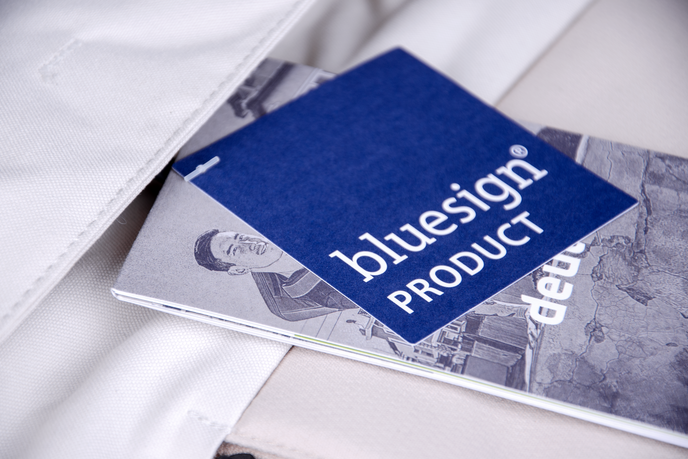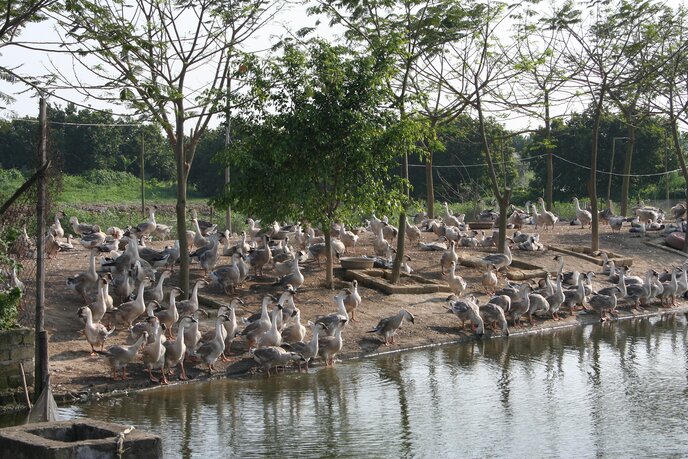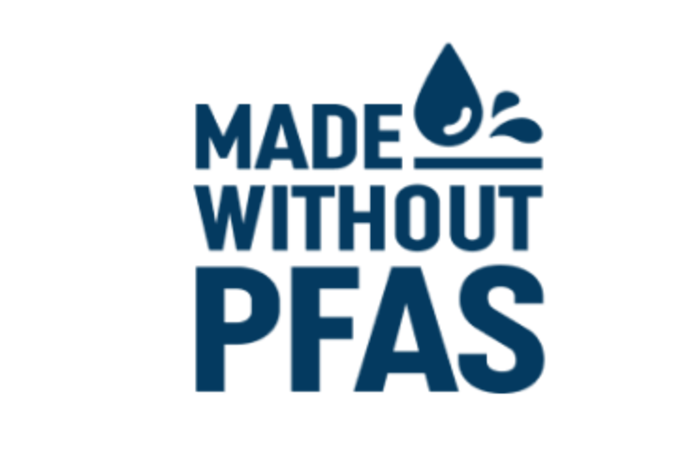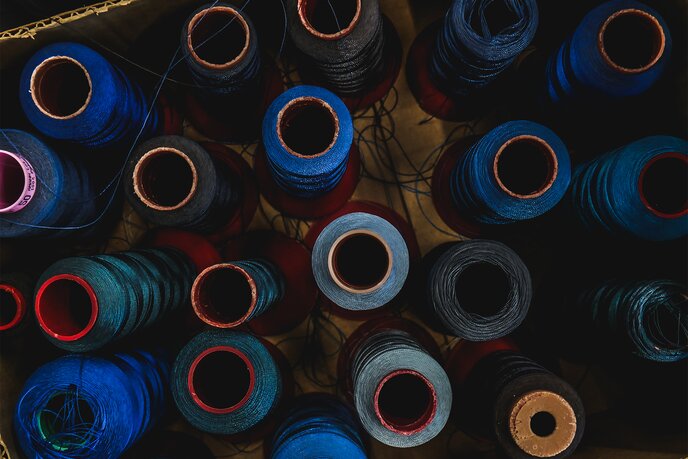MATERIALS

MATERIALS
Our secret to crafting top-quality backpacks and sleeping bags lies in using the finest materials.
The selection of materials and craftsmanship focuses on ensuring high quality, sustainability, and long-lasting durability.
In contrast to cheap imports, deuter has a say in determining the quality of its raw materials. Regular laboratory testing guarantees that legal requirements for the exclusion of pollutants such as AZO dyes, heavy metals, phthalates etc. are upheld. To ensure that deuter fabrics fulfil certain requirements and can withstand the extreme demands placed on them, we use fabric quality levels that surpass any standards. We also use creative, effective ways of combining the right materials to ensure our products are suited to the applications they are designed for.
Based on ‘bluesign® criteria’, manufacturing processes and components assembly are inspected and made more sustainable. One each step in the supply chain uses sustainable materials and manufacturing practices, a product can eventually achieve ‘bluesign® product’ status. Today, almost all deuter products are made with a high proportion of bluesign® certified fabrics and components. And we are steadily increasing the proportion of bluesign® certified fabrics we use: Verlinkung Ziele bis 2025.
Despite the complex nature of backpack and sleeping bag production, we have managed to achieve bluesign® product status for many of our products, and their numbers are ever increasing. Currently (as of September 2021), 19% of all backpack and sleeping bag models in our collection are bluesign® products, such as our lifestyle day packs, the Kikki children’s pack and all the down sleeping bags in the Astro series.
Here you can find all our currently completely bluesign® certified products.
Polyamide is extremely abrasion resistant and colorfast. For a thin, lightweight fabric it is also highly durable. Polyester does not absorb moisture, does not fade as fast in UV light, and has a pleasant textile feel. Both of these synthetic fibers are very strong and extremely durable, and they are primarily used in deuter products as outer fabric or lining fabric.
The recycled PA currently used by deuter is made from post-industrial textile waste. This is referred to as pre-consumer waste, i.e. the waste is generated in the manufacturing process before it becomes a consumer product.
Recycled PES is made by recycling used PET bottles. This is therefore post-consumer waste, i.e. waste generated by the use and consumption of plastic products (PET bottles in this case).
There are also differences in the recycling processes used for rePA and rePES:
Recycled PA goes through an extensive chemical process to be recycled, while PES which is made from PET bottles is simply washed, shredded, melted down, and spun into yarn.
Making recycled fibers generally requires less CO2, less energy and less crude oil. RePES has an even better environmental footprint compared to rePA.
In 2020 we launched the UP series of day packs made entirely from recycled PET bottles and according to bluesign® standards. One UP day pack uses up 35-40 PET bottles (0.5 liters).



